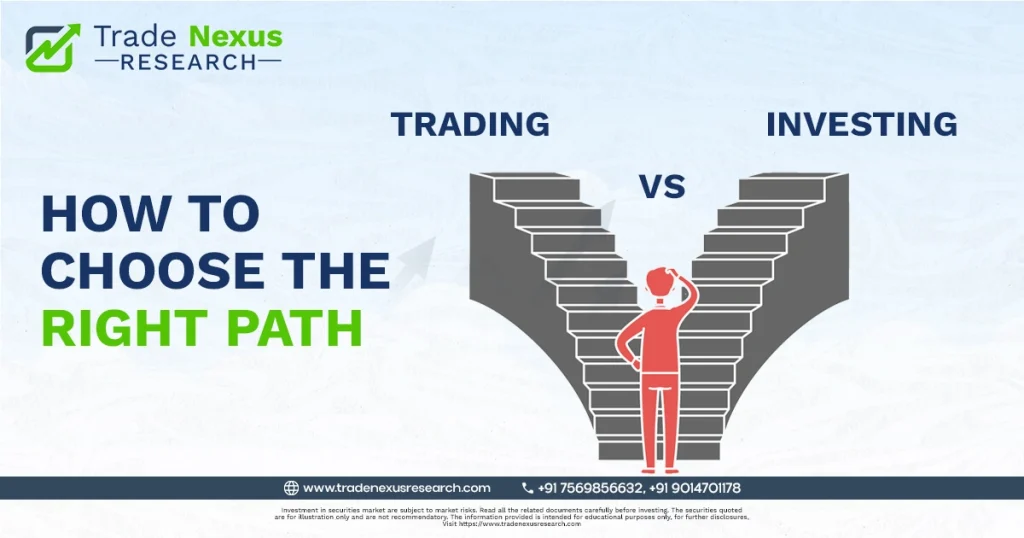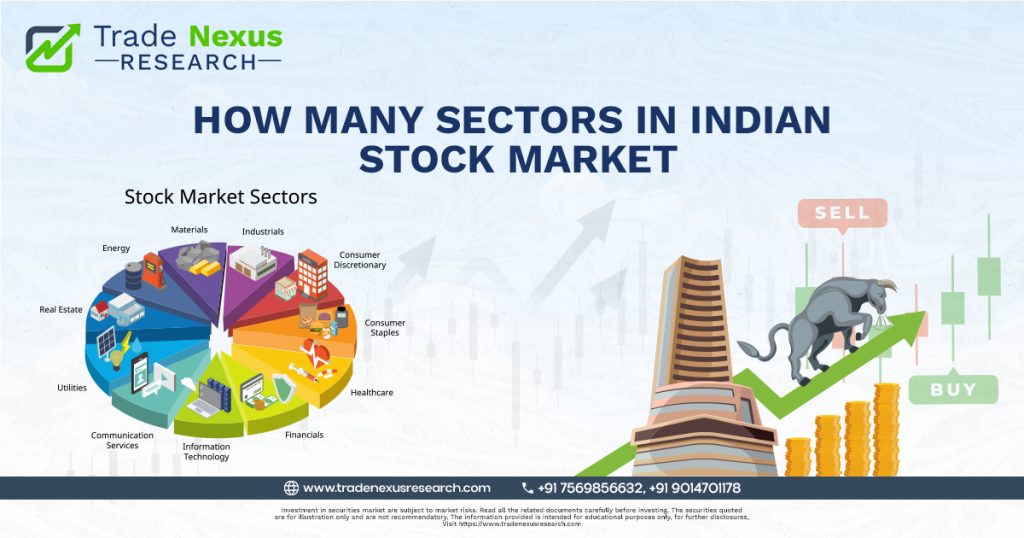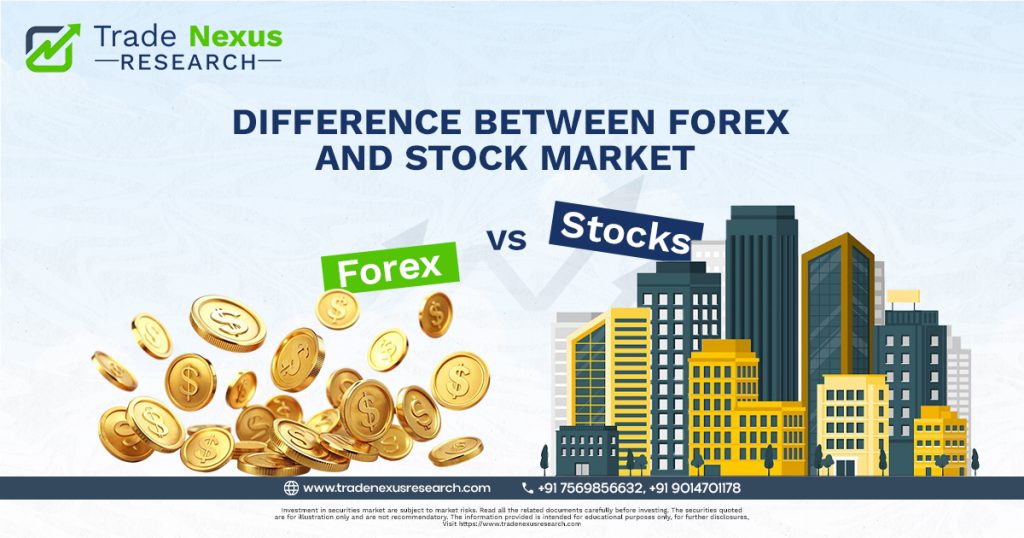
Introduction: The Big Question—Trading vs Investing
In the world of financial markets, the debate of trading vs investing is ongoing. Both paths promise wealth creation, but the routes are vastly different. Some prefer the thrill and quick gains of trading, while others opt for the steady, long-term approach of investing. At Trade Nexus Research, we dive deep into the mechanics of both, helping you make an informed decision. Whether you’re a beginner or an experienced market participant, understanding the difference between trading and investing is essential for success.What Is Trading?
Trading involves buying and selling financial instruments like stocks, derivatives, or forex over short periods—sometimes within minutes or hours. The objective is simple: capitalize on price fluctuations to generate quick profits. Traders rely heavily on technical analysis, price charts, and market trends. Unlike investors, traders are not concerned with long-term growth or dividends—they focus on timing the market.Types of Traders:
- Intraday Traders: Execute trades within the same day.
- Swing Traders: Hold positions for days or weeks to exploit short-term trends.
- Scalpers: Make rapid trades to benefit from minor price movements.
- Position Traders: Trade long-term trends but still exit within months.
What Is Investing?
Investing is about buying assets—stocks, mutual funds, bonds, real estate—with the goal of long-term growth. Investors hold onto assets for years or decades, allowing compound interest and business fundamentals to work in their favor. Unlike trading, investing is driven by fundamental analysis, evaluating a company’s value, management quality, revenue growth, and industry trends.Popular Investment Avenues:
- Stocks & Shares
- Mutual Funds & SIPs
- ETFs & Index Funds
- Government Bonds & PPF
- Real Estate & Gold
Trading vs Investing: Key Differences
| Feature | Trading | Investing |
|---|---|---|
| Time Horizon | Short-term (minutes to weeks) | Long-term (years to decades) |
| Approach | Technical charts & market sentiment | Business analysis & economic trends |
| Objective | Fast profits | Wealth accumulation |
| Risk Level | High (volatile and fast-moving) | Lower (diversified, long-term perspective) |
| Involvement | Active, daily monitoring required | Passive, minimal intervention needed |
| Returns | Unpredictable, potentially high | Stable, compounding growth |
| Stress | High due to market fluctuations | Lower due to long-term strategy |
| Tax Implications | Higher (frequent trades) | Lower (LTCG benefits on holding) |
Advantages of Trading
- Faster Returns: You can see profits (or losses) quickly.
- Leverage Opportunities: Margin trading increases exposure.
- Exciting & Dynamic: Perfect for those who enjoy fast decision-making.
- Profit in Any Market: Traders can make money in bull or bear phases.
- Emotion-driven decisions can lead to losses.
- Requires constant market analysis and time.
- Brokerage fees, slippages, and taxes eat into profits.
Advantages of Investing
- Compounding Returns: Investing benefits from exponential growth.
- Dividend Income: Many stocks pay regular dividends.
- Lower Stress: You don’t need to check markets every hour.
- Suitable for Financial Goals: Like retirement, education, home buying.
- Market downturns can affect short-term value.
- Patience and discipline are essential.
- Returns take time—no overnight riches.
Trading vs Investing: Real-Life Scenario
Let’s say you have ₹1,00,000.- As a Trader: You might turn it into ₹1,20,000 in a few weeks—or lose a chunk of it just as fast. It depends on your skill, timing, and discipline.
- As an Investor: You could double or triple the money over 5–10 years through well-chosen stocks or mutual funds, with far less stress.
Who Should Trade and Who Should Invest?
You Should Choose Trading If:
- You can dedicate time daily for analysis and monitoring
- You’re emotionally disciplined and can take quick decisions
- You enjoy short-term excitement and risk
- You’re prepared to lose money in pursuit of faster gains
You Should Choose Investing If:
- You want to build wealth passively
- You’re saving for long-term goals
- You believe in the power of compounding
- You prefer low-risk, steady returns over time
Can You Do Both Trading and Investing?
Absolutely. Many people allocate:- 80% to investing (safe, long-term core portfolio)
- 20% to trading (high-risk, high-reward short-term positions)
Trading vs Investing in the Indian Market
The Indian financial ecosystem is growing rapidly. Here’s how both strategies play out:- Trading: Nifty 50, Bank Nifty, options, and commodity trading have exploded thanks to platforms like Zerodha and Angel One.
- Investing: SIPs, ELSS funds, and blue-chip stocks are seeing record inflows from retail investors and NRIs.
Risk Management in Trading vs Investing
No matter your choice, risk management is non-negotiable.- Traders should use stop-losses, position sizing, and avoid over-leveraging.
- Investors should diversify across sectors and asset classes, and review portfolios annually.
Final Verdict: Trading vs Investing – What Should You Choose?
The battle of trading vs investing is not about right or wrong—it’s about what suits your personality and goals.- Want quick results and can tolerate risk? Go with trading.
- Want long-term stability and peace of mind? Stick with investing.
- Want to do both smartly? Balance them with a strategy built on research and discipline.
Frequently Asked Questions (FAQs)
Q1: Is trading more profitable than investing? Trading can be more profitable in the short term—but it’s also riskier. Investing gives steady, long-term returns. Q2: How much time does each require? Trading requires hours of daily attention. Investing requires only occasional portfolio reviews. Q3: Which is better for beginners? Investing is generally safer and easier for beginners. Trading demands experience and emotional control. Q4: Do I need different tools for trading vs investing? Yes. Traders use charting platforms like TradingView, while investors focus on platforms offering financial reports and long-term trends.Conclusion: Let Trade Nexus Guide Your Financial Journey
The choice between trading vs investing depends on your goals, temperament, and knowledge. Don’t chase returns blindly—build a strategy. With the right education and research, both paths can lead to financial success.🔍 Follow Trade Nexus Research for:
- Trading strategies
- Investment insights
- Portfolio-building advice
- Market outlooks and reports


